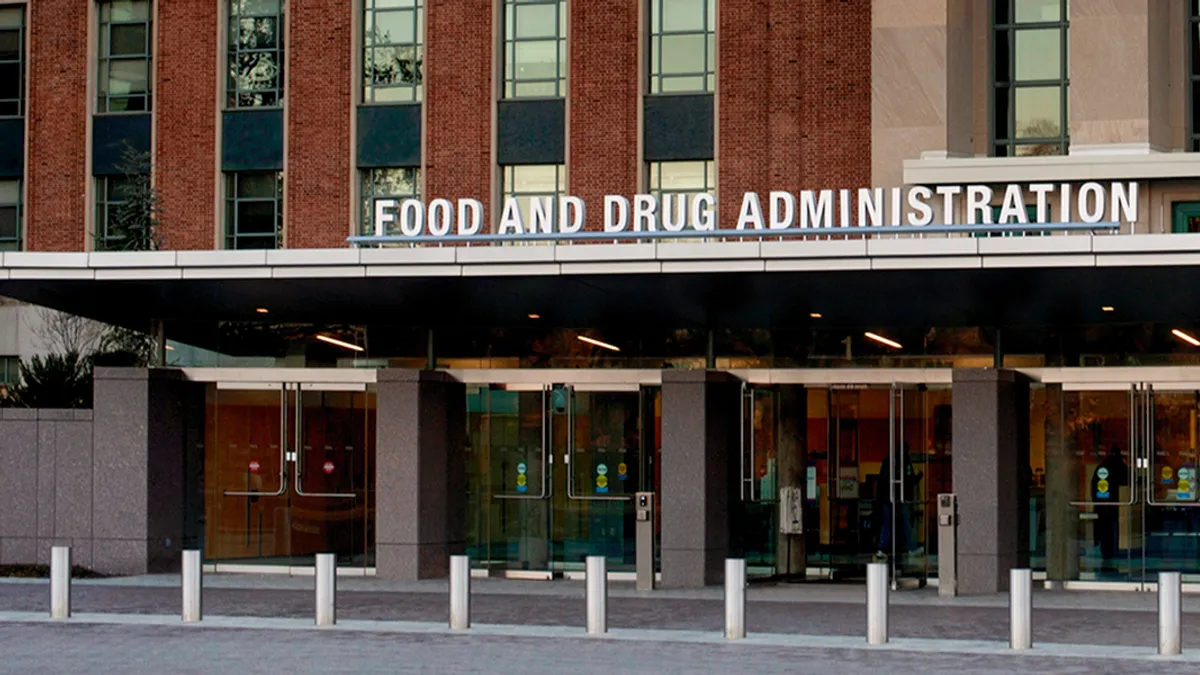Dive Brief:
- FDA on Tuesday said it revoked an emergency use authorization for Chembio Diagnostics' SARS-CoV-2 antibody test over concerns about its accuracy.
- Chembio's serological test, designed to detect antibodies indicating a person's exposure to COVID-19, was one of the first such tests granted an EUA by the agency during the coronavirus public health emergency.
- However, data submitted by the company and an independent evaluation by the National Cancer Institute showed the test generated a higher-than-expected rate of false results, FDA said. Chembio shares were down more than 60% on Wednesday on news of regulators' course reversal.
Dive Insight:
FDA in early May toughened its requirements for COVID-19 antibody tests, meant to help identify individuals infected with the virus who may have developed immunity. The agency took the action as questions have mounted about the accuracy of serology tests that had not received agency review and emergency use authorization.
However, the FDA's revocation of Chembio's EUA – its first such regulatory action on the diagnostics side during the pandemic – shows that test accuracy remains a concern, even in cases where the agency carried out the emergency use authorization process. To date, FDA has authorized 21 antibody tests under EUAs.
Problems with the accuracy of Chembio's antibody test, which received an EUA on April 14, did not surface until more recently, according to the FDA's announcement.
"At the time of authorization, based on the information that Chembio submitted to the FDA at that time, the agency concluded that the test met the statute’s 'may be effective' standard for emergency use authorization, and that the test’s known and potential benefits outweighed its known and potential risks."
However, FDA contends that as time has passed during the pandemic, it's gotten a better understanding of the performance and expectations required for COVID-19 serology tests. As a result, the agency concluded "it is not reasonable to believe" that Chembio's test may be effective in detecting SARS-CoV-2 antibodies "or that the known and potential benefits of the test outweigh the known and potential risks of the test," including a high rate of false results that FDA warned pose a risk to public health.
The EUA revocation means the Chembio antibody test may no longer be distributed, according to the FDA. Nonetheless, as of Wednesday morning, the company's website still promoted its Dual Path Platform (DPP) COVID-19 IgM/IgG System as "authorized by FDA under an EUA for use by authorized laboratories." Chembio was not immediately available for comment.
FDA has been working with the National Cancer Institute to validate some of the COVID-19 serology tests on the market, including those with previously issued EUAs such as Chembio. Results of the evaluation of Chembio's test, published May 28, indicate that out of 80 samples tested, it demonstrated the ability to correctly identify true negatives 81.2% of the time. And out of 28 samples tested, it demonstrated the ability to correctly identify true positives 82.1% of the time. Its performance appeared more precise in identifying IgG than IgM.
“By continuing to monitor authorized tests and emerging scientific evidence, we are able to make changes when appropriate – including taking action when a test’s benefits no longer outweigh its risks," said Jeff Shuren, director of FDA’s Center for Devices and Radiological Health, in a written statement.
Aside from EUA-winning tests, FDA in late May outlined a list of antibody tests that should be removed from the market after being allowed under a prior looser COVID-19 diagnostics policy that let certain products through without FDA review.
That list included an antibody test sold by BD, developed and manufactured by partner BioMedomics, which was available through the medtech starting in late March. BioMedomics' COVID-19 IgM-IgG rapid test kit, which did not receive an EUA, is among 11 serology tests that have so far been tested by the NCI with the results publicly released.
Earlier this week, FDA carried out a high-profile EUA revocation on the therapeutics side, pulling back its authorization for hydroxychloroquine after determining it unlikely to be effective in treating COVID-19 patients.











